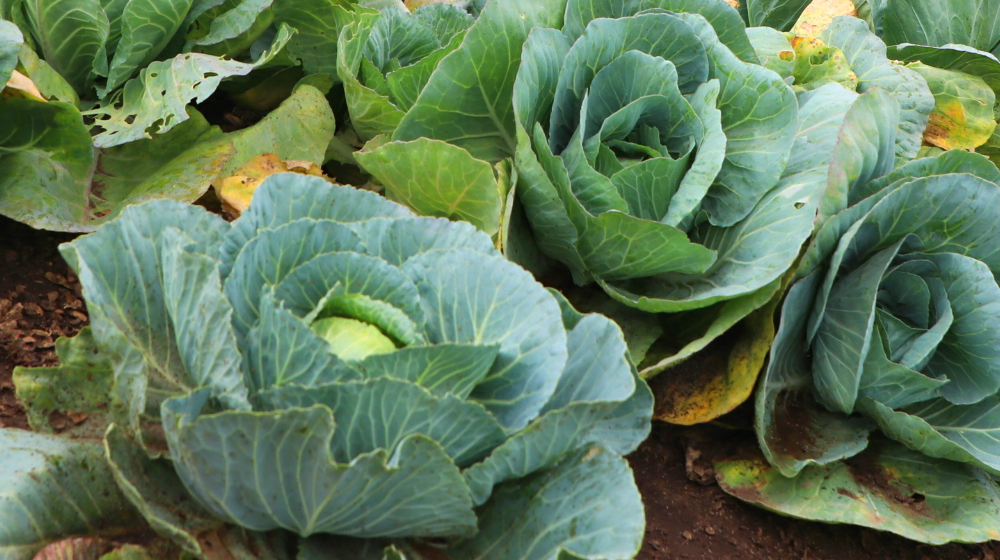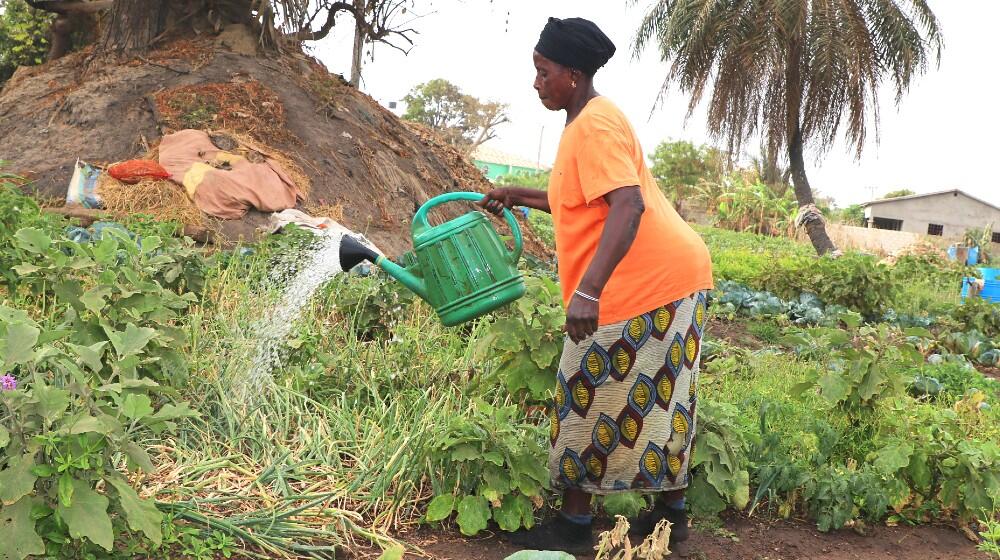“Farming to feed my family and raise my children can only be possible for me and other women in conflict-free communities where we enjoy the liberty to live in health and dignity.” – Mariama Sanyang
In a world where climate change is impacting everyone everywhere either directly or indirectly, the poor and vulnerable are left to carry a great burden of its effects due to their lack of adequate resources to adapt. In The Gambia, these groups are mainly comprised of women and young people due to socio-culturally fueled power imbalances, their limited access to ownership and control of resources and their exclusion from participation in decision making processes. Consultations held by The Gambia Red Cross Society and the World Food Programme in the North bank Region have indicated weak community-level dispute resolution platforms and monitors which were further found to exclude women and young people. The lack of inclusion of this demography can be attributed to socio-cultural norms which augment gender and age inequalities and gender-based injustices.
Today, women constitute over 70% of the agricultural workforce in The Gambia mainly through their participation in subsistence farming, which aids in the nurturing and upkeep of their families and their participation in social life. Mariama Sanyang is a woman farmer and native of Kubandar. She is part of a group of 30 women farmers who benefitted from the Regional Farmer Field School Training for women from the North Bank, Central River and Upper River Regions of The Gambia. Supported by UNFPA with funding from UN Peacebuilding, the training was aimed at mitigating the effects of gender-related vulnerabilities resulting from the impact of climate change in farming communities.
Her community, Kubandar, a small settlement in the North Bank Region of The Gambia has been the subject of land ownership disputes with its neighbouring villages such as Makka Farafenni for decades. Unfortunately, women farmers have been on the receiving end of the negative impact of these disputes as they are forced to evade their farmlands and seize farming activities to support the amicable resolution of such inter and intra-community land disputes.
“When conflict arises over land ownership in our community, women are forced to evade their farmlands because we do not have ownership of the land on which we farm. I wish this was different” Mariama stressed.
Upon completion of the training, Mariama and other representatives from her community received 500 grams of certified cabbage, onions and tomato seeds to aid their farming activities and enable them to operationalise the lessons learnt from the Farmer Field School. This support has proven to be beneficial not just to her, as her family is yielding the dividends as well.
“My farm is now producing bumper harvests which are helping me to pay for my children’s school fees, feed my family and empower myself to be self-sufficient” an elated Mariama shares.

Interestingly, it should be noted that when women have limited access to resources to support themselves and their families, feeding and daily sustenance become major priorities. This unfortunately forces them to relegate their health and wellbeing as secondary issues. However, unhealthy womenfolk can only have critical negative implications on social, economic and health indicators around families and communities, which will ultimately affect the socio-economic development of nations.
The UN Peacebuilding Climate Change project, which is jointly implemented by UNFPA, WFP and ITC is geared towards working with various stakeholders and communities to address conflict and tensions in local agricultural communities, affected by the increasing impact of climate change on their lives and livelihoods, with specific attention to resolving the gender-related vulnerabilities resulting from the impact of climate induced-conflicts.
***
Media contact: Haddy Jonga – Programme Analyst, Communications jonga@unfpa.org


